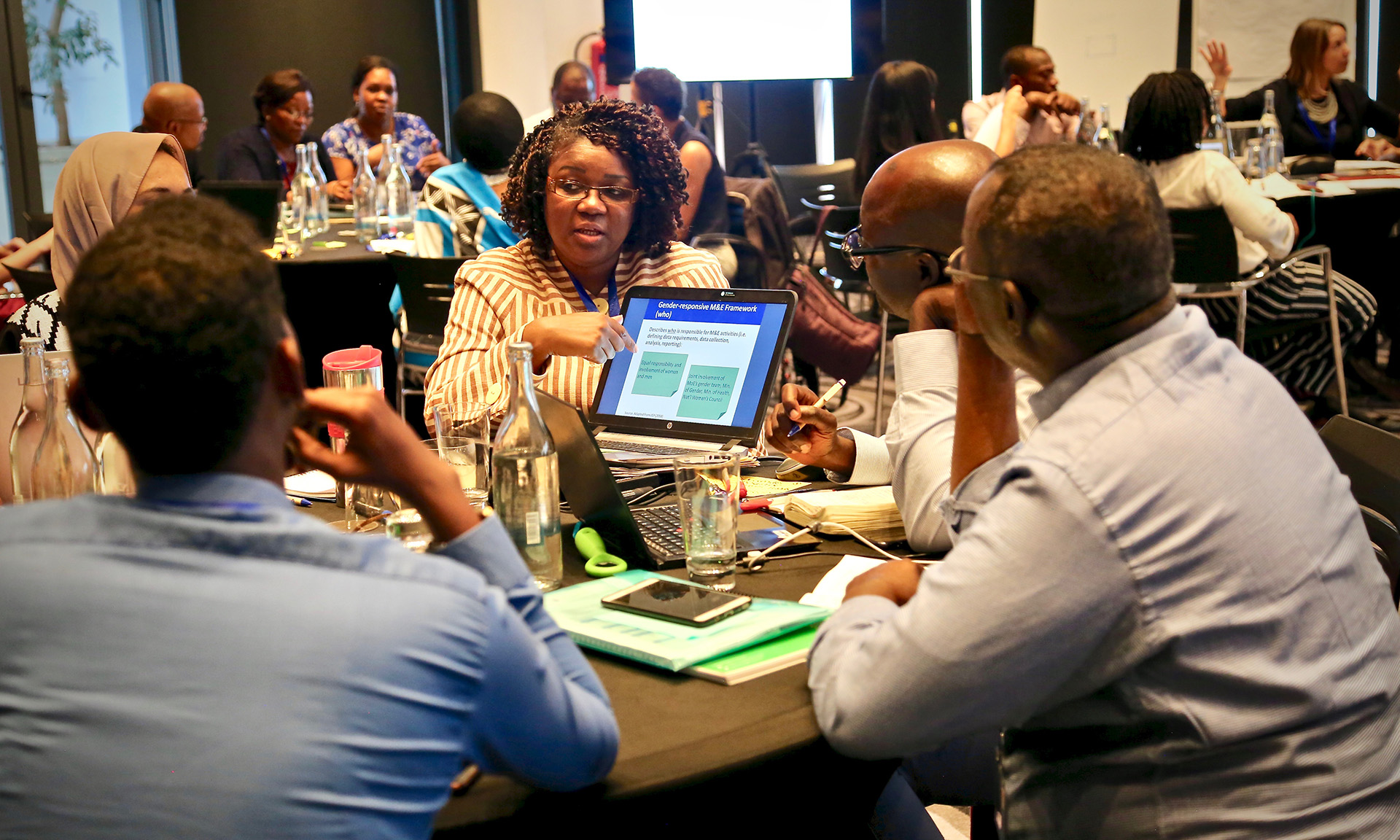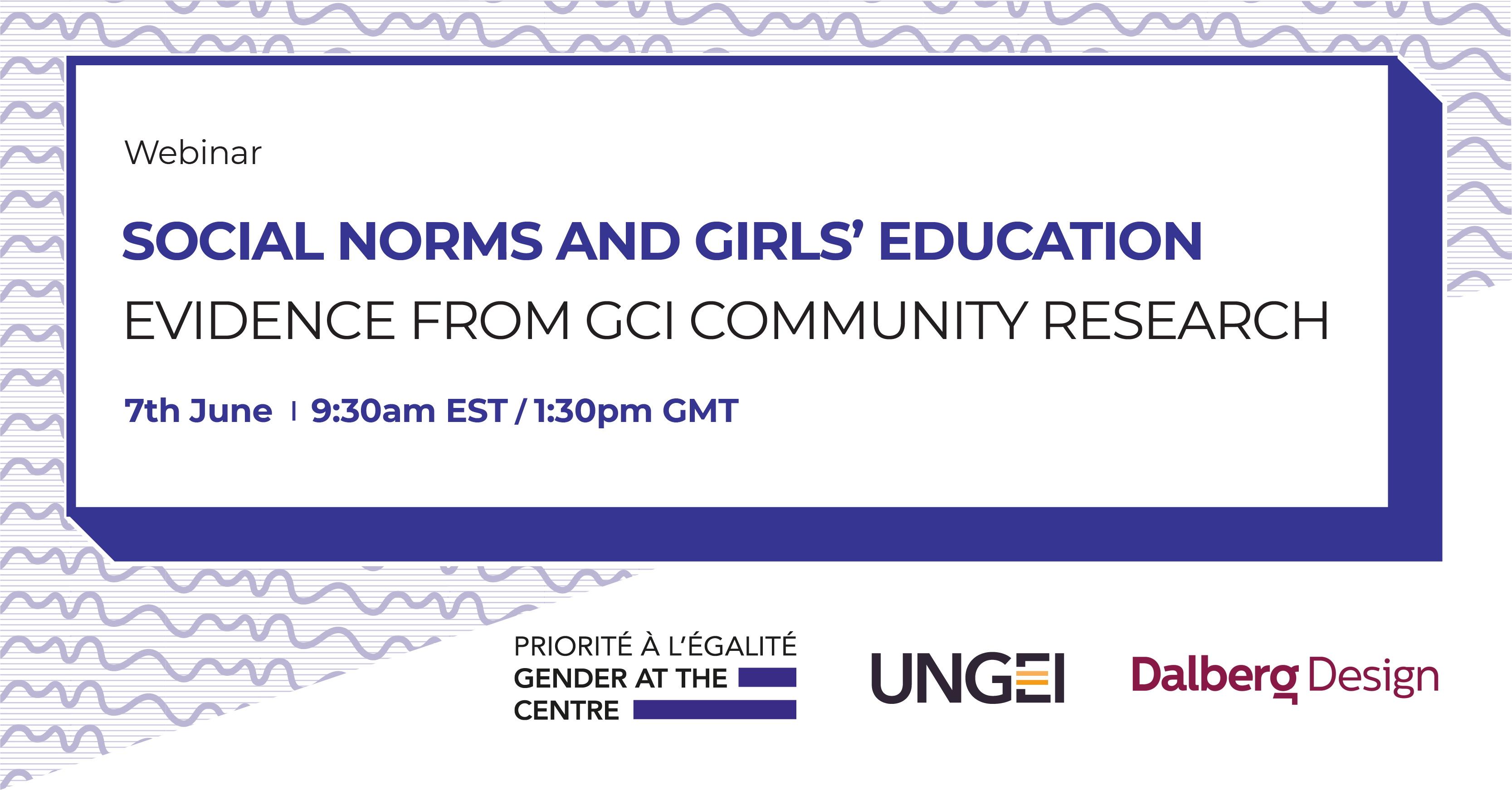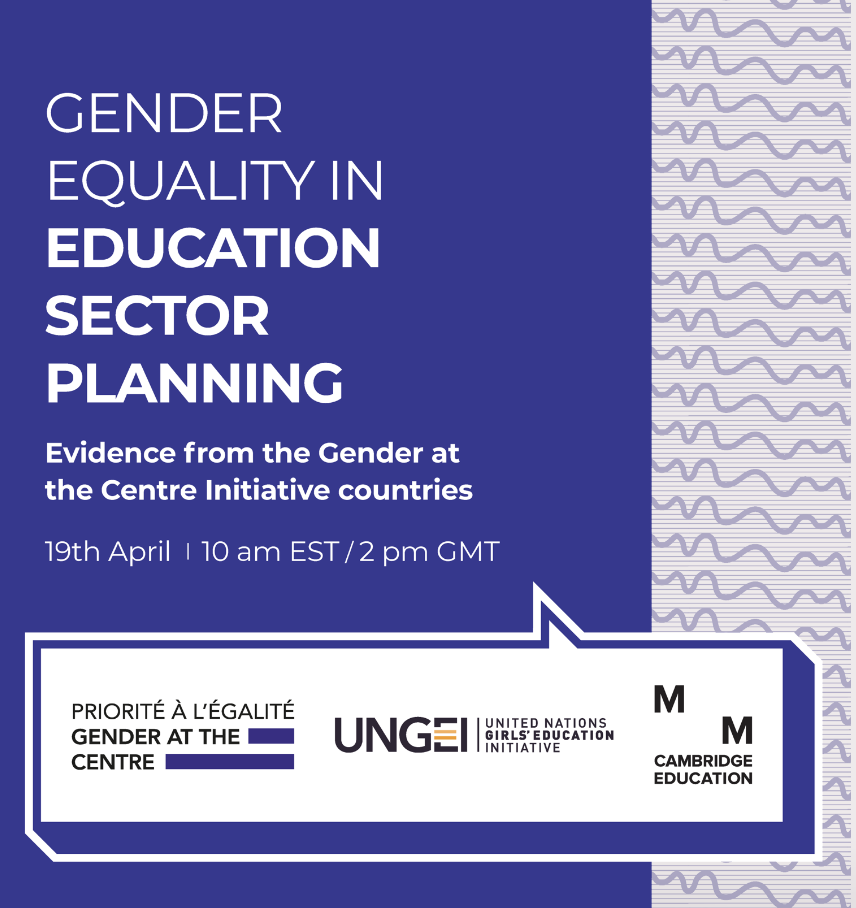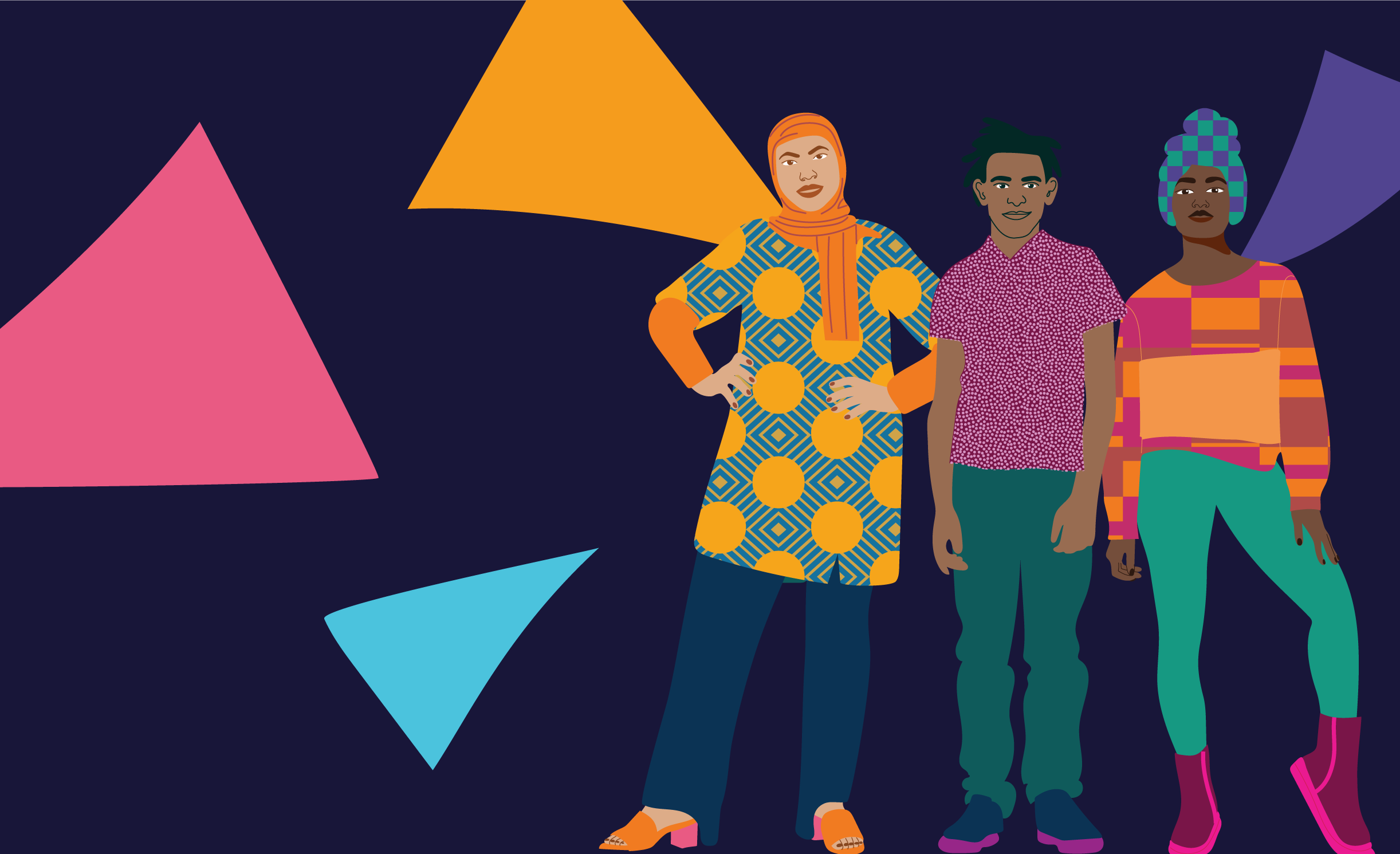Gender-responsive education by design
UNGEI co-hosts West and Central Africa workshop
Following regional workshops in Tanzania, Nepal and Togo, UNGEI and theGlobal Partnership for Education (GPE), in collaboration withUNICEF Eastern and Southern Africa Regional Office (ESARO) and theAfrican Union International Centre for Girls’ and Women’s Education, are this week co-convening a workshop in Nairobi, Kenya, that brings together delegations from Eswatini, Kenya, Lesotho, Somalia (Federal Government), Somaliland, South Sudan, and Zimbabwe.
Taking place from 5-8 November, the workshop is designed to promote gender-responsive education sector planning (GRESP) across the region. Representing seven GPE developing partner countries, the delegations are currently or will soon engage in education sector planning (ESP), analysis or the development of an ESP implementation grant proposal.
Answering the call for gender-responsive education
Building on the experience and expertise of delegations, which comprise ministry staff, local education group (LEG), and civil society organisation (CSO) representatives, the workshop aims to enhance their understanding of gender equality in education. Key goals include:
- Improved understanding by each participant of gender analysis and its role in education sector planning
- Enhanced capacity of participants to apply a gender lens to education policy and planning
- Increased commitment of each participant to use their leadership to advance gender equality in education
- Fostering links and the sharing of experiences and lessons learned between participants and between country delegations
Drawing on country education sector analyses, delegates are introduced to the GPE-UNGEI GRESP Guidance along with other tools and materials on gender and education sector planning. Additional technical support is provided by UNICEF ESARO, the International Institute for Educational Planning at UNESCO (IIEP), the Forum for African Women Educationalists (FAWE), and other technical partner organisations. Participants are helped to make links with GPE processes to ensure the integration of gender analysis into ongoing planning, implementation, and reporting processes at country level.

Practical exercises enable delegates to carry out a gender review of their national sector plan, encouraging them to develop the gender-responsiveness of the document as a framework for action. By sharing needs, challenges and best practice, delegates glean valuable learnings which can be adapted and applied to different national contexts. After the workshop, participants support in-country follow up efforts through the LEG and their respective agencies and units.
Our ultimate vision is not just to see the promise of gender equality in education delivered for all children everywhere, but for the gender transformative potential of education to be realised. This week’s workshop represents one more step towards our shared vision of a world in which every child can fulfil their potential through education.


